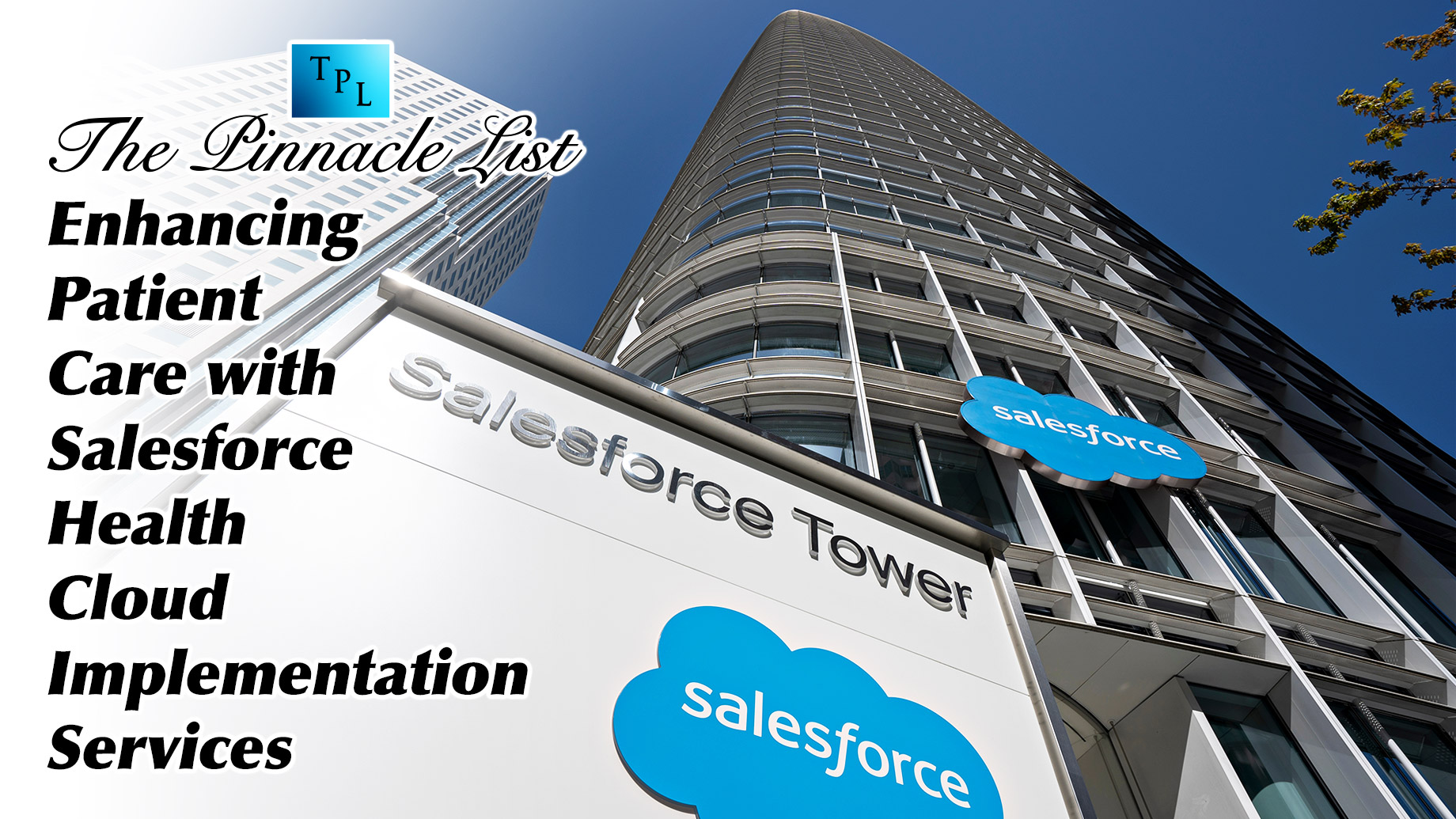
The healthcare industry is evolving rapidly. Patients expect seamless, personalized, and efficient care, and healthcare providers must leverage technology to meet these expectations. This is where Salesforce Health Cloud implementation services come into play. Salesforce Health Cloud is revolutionizing the healthcare sector with its design to improve overall patient experiences, optimize operations, and increase patient engagement.
Understanding Salesforce Health Cloud
Healthcare providers can centralize patient data, enhance communication, and provide a 360-degree perspective of each patient with Salesforce Health Cloud, a comprehensive solution.
Healthcare providers can:
- Simplify patient management with a single platform by using Salesforce Health Cloud implementation services.
- Boost communication between patients and care teams
- Automate administrative duties to cut down on manual labor.
Key Benefits of Salesforce Health Cloud Implementation Services
1. Centralized Patient Data for Improved Coordination of Care
Healthcare practitioners sometimes face challenges due to fragmented data from several platforms. Treatment plans, appointments, medical histories, and patient records are all consolidated in one location with Salesforce Health Cloud. Healthcare providers are better able to make judgments that result in better treatment plans and better patient outcomes when all pertinent information is easily accessible.
2. Better Experience and Engagement of Patients
Today’s patients expect individualized healthcare experiences that address their specific needs rather than merely receiving treatment. Organizations may ensure patients adhere to their healthcare plans by using Salesforce Health Cloud to deliver automated reminders for appointments, follow-ups, and prescription regimens.
3. Improved Treatment
Healthcare is a team endeavor, and providing high-quality care requires efficient teamwork. Health Cloud’s integration of Salesforce customer support features allows healthcare providers to streamline care coordination and close communication gaps. All members of the care team will stay in sync thanks to the platform’s features, which include shared notes, task automation, and real-time updates.
4. Data-Driven Understanding to Make Better Choices
The AI-powered insights in Salesforce Health Cloud help doctors identify trends, foresee potential health risks, and improve treatment plans. Healthcare professionals can improve resource allocation, identify early warning indicators of chronic diseases, and customize treatment regimens based on past trends by utilizing predictive analytics. By identifying at-risk groups and suggesting preventive care actions, AI-driven insights also aid in patient population management. Proactive healthcare management, fewer readmissions to hospitals, and better long-term health outcomes for patients are the results of this data-driven strategy.
5. Security and Compliance
Healthcare organizations must abide by stringent regulations like HIPAA and GDPR to safeguard patient security and privacy. Salesforce Health Cloud has built-in security features including audit trails, access controls, and encryption to safeguard private patient information. By limiting access to patient records to authorized workers, the platform guards against unapproved breaches. Furthermore, automated notifications and real-time monitoring assist healthcare providers in quickly identifying and addressing possible security risks. Salesforce Health Cloud offers a strong foundation to preserve data integrity and guarantee conformity to changing regulatory standards with frequent security updates and compliance tracking.
How Salesforce Customer Service Enhances Healthcare?
Salesforce customer service solutions help healthcare providers deliver exceptional support, going beyond just patient management. They reduce wait times, improve patient satisfaction, and enhance overall healthcare experiences.
1. 24/7 Support Availability
Patients can access assistance at any time through AI-powered chatbots and automated support systems, ensuring they receive timely responses without delays. Whether they need help with scheduling an appointment, understanding their medical reports, or getting urgent health advice, they can get answers instantly. This round-the-clock availability reduces stress for patients and ensures they never feel abandoned when they need help the most.
2. Personalized Patient Support
AI-driven chatbots and intelligent support systems can provide customized recommendations based on a patient’s medical history, preferences, and past queries. For instance, if a patient has diabetes, the chatbot can remind them about diet tips, medication schedules, or upcoming check-ups. This level of personalization makes interactions more relevant and engaging. Patients feel valued and supported, which fosters better relationships with healthcare providers.
3. Omnichannel Support
Patients can communicate with healthcare providers through multiple channels such as email, live chat, social media, phone calls, and even mobile apps. A patient who prefers texting over calling can use chat support, while someone seeking immediate assistance can opt for a phone call.
4. Efficient Appointment Scheduling
Patients can easily book, reschedule, or cancel their appointments using self-service portals or mobile apps. With automated reminders, patients receive timely notifications about their upcoming visits, reducing the chances of missed appointments. Patients appreciate the convenience of managing their appointments without making phone calls or visiting the hospital.
5. Faster Resolution of Queries
With integrated case management, patient inquiries, complaints, and requests are addressed quickly and efficiently. For example, if a patient has a billing issue, the system routes their concern to the right department immediately.
6. Proactive Health Notifications
Automated reminders help patients stay on top of their health by notifying them about medication schedules, upcoming checkups, vaccinations, and preventive care measures. For example, a patient with a heart condition may receive reminders to take their prescribed medication on time or schedule routine tests.
Implementing Salesforce Health Cloud with Experts
Salesforce Health Cloud has several advantages, but proper deployment calls for the necessary knowledge. Healthcare companies may get the most of Salesforce by collaborating with a reliable Salesforce implementation partner.
A trustworthy partner for Salesforce Health Cloud implementation services is Melonleaf Consulting. To guarantee a seamless adoption process, their team of experts helps healthcare organizations with staff training, Salesforce Health Cloud connection, and workflow modification.
Conclusion
Salesforce Health Cloud is transforming the healthcare industry by bringing patients and providers together. There are several benefits, from improved care coordination to more patient involvement. The greatest way to use Salesforce Health Cloud and improve your healthcare offerings is to collaborate with experts like Melonleaf Consulting.
To learn more about the possibilities of Salesforce Health Cloud, get in touch with Melonleaf Consulting.